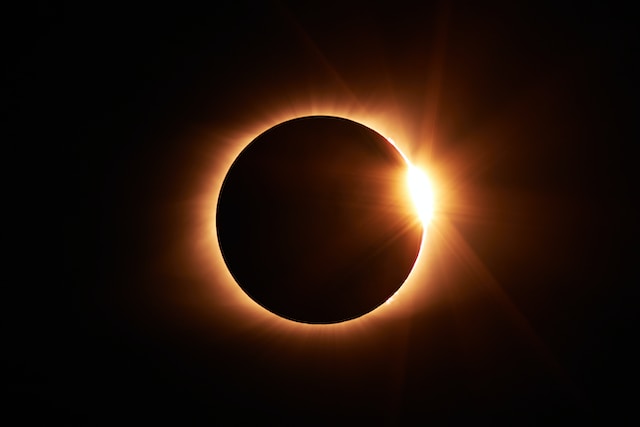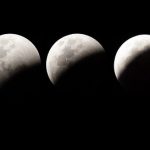
A solar eclipse, known as Surya Grahan in Hindu mythology and astrology, has captivated human beings for centuries. This celestial phenomenon occurs when the Moon passes between the Sun and the Earth, causing a temporary dimming or complete blocking of the Sun’s light. Solar eclipses have sparked various scientific and cultural beliefs regarding their impact on the human body.
Witnessing this extraordinary event is undoubtedly awe-inspiring. However, it’s crucial to understand its potential effects on the human body, considering scientific reasoning, mythology, and astrological beliefs.
Mythology and Cultural Beliefs
In Hindu mythology, the eclipse is associated with the celestial entities Rahu and Ketu, known as the lunar nodes.
According to legend, Rahu, an immortal demon, disguised himself as a god to consume the nectar of immortality. When Lord Vishnu discovered this deceit, he beheaded Rahu.
However, as Rahu had already consumed the nectar, his head became immortal. People believe that during a solar eclipse, Rahu tries to swallow the Sun as an act of revenge.
So, this myth explains the temporary obscuration of the Sun during the eclipse.
Astrological Beliefs
In Vedic astrology, a Surya Grahan is a significant event with potential astrological implications. Expert astrologers believe that the energy during an eclipse can influence human consciousness and affect the overall aura.
Additionally, some astrologers suggest that solar eclipses are opportune moments for deep introspection, meditation, and spiritual practices. They believe that aligning celestial bodies during an eclipse can amplify positive and negative energies, making it a critical time for self-reflection and personal growth.
Scientific Reasoning
During a solar eclipse, the sudden change in light and temperature can subtly influence the human body.
The decrease in sunlight intensity may affect melatonin production, a hormone that regulates sleep patterns and mood. Some individuals may experience slight changes in energy levels, leading to fatigue or drowsiness.
Further, the rapid shift in temperature during a solar eclipse can influence blood vessel dilation and contraction, potentially impacting blood pressure and circulation.
Sensitivity to these changes varies among individuals. And some may feel mild discomfort or changes in their cardiovascular system.
Precautions and Rituals
In many cultures—including India—people follow many precautions and rituals associated with solar eclipses. These rituals are deeply rooted in cultural beliefs and practices. In addition, they serve as a way to ward off negative energies and protect individuals from potential harm.
However, some general practices include —
- Taking a ritual bath before and after the eclipse
- Fasting
- Reciting mantras
- Avoiding the consumption of food and water during the eclipse.
As the celestial dance between the Sun, Moon, and Earth unfolds, the Surya Grahan remains a powerful phenomenon that unites science, mythology, and cultural beliefs.
Whether you choose to marvel at the celestial spectacle or engage in age-old rituals, the solar eclipse reminds us of our connection to the cosmos and our quest for understanding the mysteries of the universe.
Feature Image Credit: Photo by Jongsun Lee on Unsplash. (free for commercial use)




